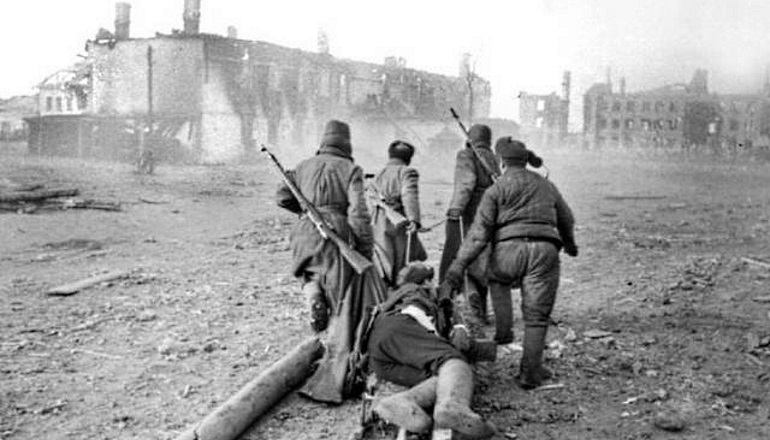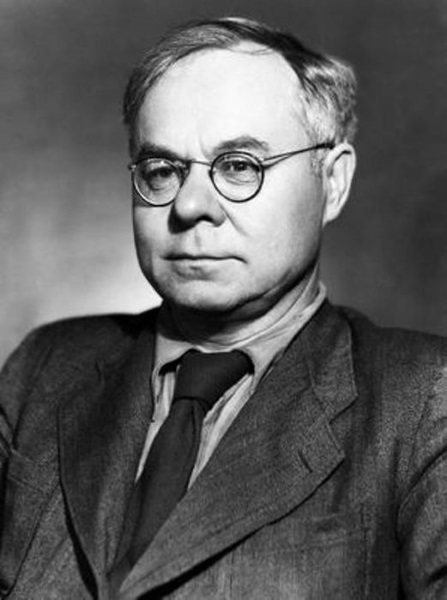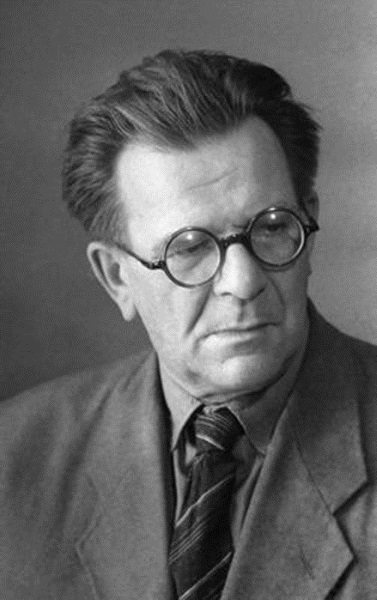
An academic conference devoted to literature about the Great Patriotic War was held in Moscow at the Institute of World Literature of the Russian Academy of Sciences, the Maxim Gorky Literature Institute and the Moscow State Pedagogical University. In addition to Russian literary critics and historians, presentations were made by their colleagues from other countries as well – Bulgaria and even Turkey.
“I am translating into Turkish Yuri Bondarev’s novella “The Last Salvo” and it will be published in Turkey this summer,” says literary critic Badegül Can Emir.
Badegül brought from Turkey his paper on how the Great Patriotic War has been reflected in Russian and Turkish prose. “That was a difficult time for us, although I was not born yet I know from my grandmother’s stories. Turkey was not a participant in the Second World War, but during that period people there suffered a lot from disease and poverty.”
“Why are you interested in Russian military prose if the war did not affect you there?”
“I am interested in military prose because people need peace, War is very bad: young men die, children suffer, women’s fates are destroyed. But people nonetheless are at war all the time.”
The organizers of the conference conceived this event to mark the 70th anniversary of victory in the Great Patriotic War.
“We are philologists and as philologists, from the perspective of literature, we wanted to celebrate this big jubilee,” says Sergei Morozov, senior fellow at the Institute of World Literature. “We posted information about the conference a long time in advance, and as a result we received so many requests for speaking slots that they could not all fit into the two days of the conference. So we selected the very best and most interesting.”

Elena Papkova, the granddaughter of writer Vsevolod Ivanov, does not remember her grandfather. She was only four when he died. Elena went on to become a teacher of Russian language and literature and then carried on family tradition and started publishing his books.
“I hardly remember anything about him,” says Elena Papkova. “The only think that I know is that when I had visited once he wrote in his journal: ‘My granddaughter Olenushka came for a visit and broke all of the pencils on my table’.” Recently a collection of Vsevolod Ivanov’s stories and novellas was published as a part of the “Literary Memorial” series.
When the war broke out Vsevolod Ivanov lived in the writers’ community of Peredelkino outside Moscow. Writers began getting calls to head to the front as war correspondents. Both Krasnaya Zvezda and Izvestia called Ivanov.
He was surprised at getting called upon to work at two places at once but nonetheless wrote articles for both publications, Elena Papkova explained. However, their family was soon evacuated to Tashkent. “Judging how he described the writer’s life in Tashkent, he believed that it was not proper: ‘Writers drink vodka and call each other geniuses, meanwhile there is a terrible war going in.’ In late 1942 he returned to Moscow and in 1943 was at the Kursk salient, and then he went all the way to Berlin together with our army in 1945,” Papkov says.
“What kind of unspoken truth about the war did he leave in his diaries?”
“From his diaries it is very clearly portrayed: here he is living in Moscow and partisans from the front arrive; he as a writer is assigned to interview them about what they are doing for the newspaper. And so he meets with the partisans – a boy of 18 and girl of 20 who had just come back from the front. They tell him about their experiences, he writes it down and says: ‘Well, read what I write about you when you get a chance!” And the girl responds: ‘Yes, if we are not killed, then we’ll read it.’ This is taking place at the central Komsomol building, and he goes into some room to collect his things and there is some guy Rappoport stacking up flyers that need to be flown behind enemy lines. And all of this makes him sick, because he is here and they are out there, and the life here is simply incomparable. That for me was the most griping, because he had this really sincere feeling that real life was not happening here, not in the writers’ community.”
“Didn’t the conditions on the front weigh heavy upon him?”
“No, he was more concerned about his children. At that time he had four children, two of his own and two adopted. He write: ‘I myself am totally ready for anything.’ He wasn’t afraid of death. He had been on the front in 1919, in Siberia, he also went to Omsk during the Civil War. And here he wanted to go to the front out of some sense of inner honesty. I really respect him for that.”
Writers were also engaged in the documentation of live oral history at the request of a special commission on the history of the Great Patriotic War, which was created in 1941 by the Academy of Sciences of the USSR and functioned until 1945. The materials of the commission are now being studied by Konstantin Drozdov, a senior research fellow and head of the archives of the Institute of Russian History of the Russian Academy of Sciences. For the conference he prepared a comparative historical analysis of the commission’s stenograph from 1941-1942 and Alexander Bek’s novel “Volokolamsk Highway”.
“Historians, journalists and writers went to the front and interviewed commanders, political workers and soldiers about the fighting. They first of all started collecting interviews about the Battle of Moscow. When the war ended the commission was reformed into the Sector of the History of the Great Patriotic War of the Institute of History, which now is the Institute of Russian History of the Russian Academy of Sciences, so the documents have remained with us,” Drozdov explains.
“History was studied using such field methods?”
“Yes, it’s called oral history. In the 1930s this method was used to write the history of the working class. There was a project called ‘The History of Factories and Plants’. The mission was developed by Gorky: to show the history of the little person, because history is made not my rulers but by simple people. This was the principle used to create the military commission, because the details which are not reflected in the archival documents can only be learned from personal stories.”
“What did you see when comparing the oral history with the novel “’Volokolamsk Highway’? Is the author’s truth different from the historical truth?”
“I had a different objective. I looked at it not form the literary perspective but rather from the historical perspective. Right now much is being erased. The revision of history has even gone so far as to deny the feat of the Panfilov Guardsmen. Journalists make such statements without any grounds, without studying the archives. I had the aim of comparing what was reflected in Bek’s novel with how this is portrayed in the stenograph. I realized that a lot of what he tells hasn’t been changed at all, even the names. For example in the commission’s notes there is a gunner with sir name of Zaev while Bek has Kraev. Tolstunov is Tolstunov. The persona are very close to reality. When creating the first two novellas of ‘Volokolamsk Highway’ which were published in 1943-1944, Bek probably intended to show the truth about the war. The truth which was not printed in the newspapers of those days.”

Working on his novella, Alxander Bek visited the division, spoke with the people and simultaneously did 13 interviews for the commission in the fall of 1942. At the start of the war he volunteered with the Moscow’s Kransopresnenskaya Rifle Volunteer Division, was encircled and then escaped from the encirclement. He then became a military correspondent.
“This is why it seems to me that he wanted to portray all of the difficulties of war,” says Konstantin Drozdov. “That it is laborious, that it is difficult and that the situation can change several times in the course of a day. This entire novella about one battalion headed by Kazakh Senior Lieutenant Bauyrzhan Momyshuly – he is the main hero of the novella. His 1073rd regiment, which neighbored the regiment of the 28 Panfilov Guardsmen, who were positioned near Dubosekovo (the 1075th regiment), are from the same division. The commissar of the regiment was Pyotr Logvinenko, and he survives. As commissar of the regiment he knew Bauyrzhan Momyshuly as well as the general situation. In an interview with the commission he describes how difficult it was for them when in November the German offensive began and they received an order from Stalin to burn the villages so that nothing would remain for the enemy. He asked that people leave there homes and simply set them on fire. And here he tells how a woman ran out, grabbed her daughter and some dough that had been set out: ‘When I saw this I teared up! But an order is an order.’ That is the unspoken, unembroidered truth about the war.”
Olga Ogareva










